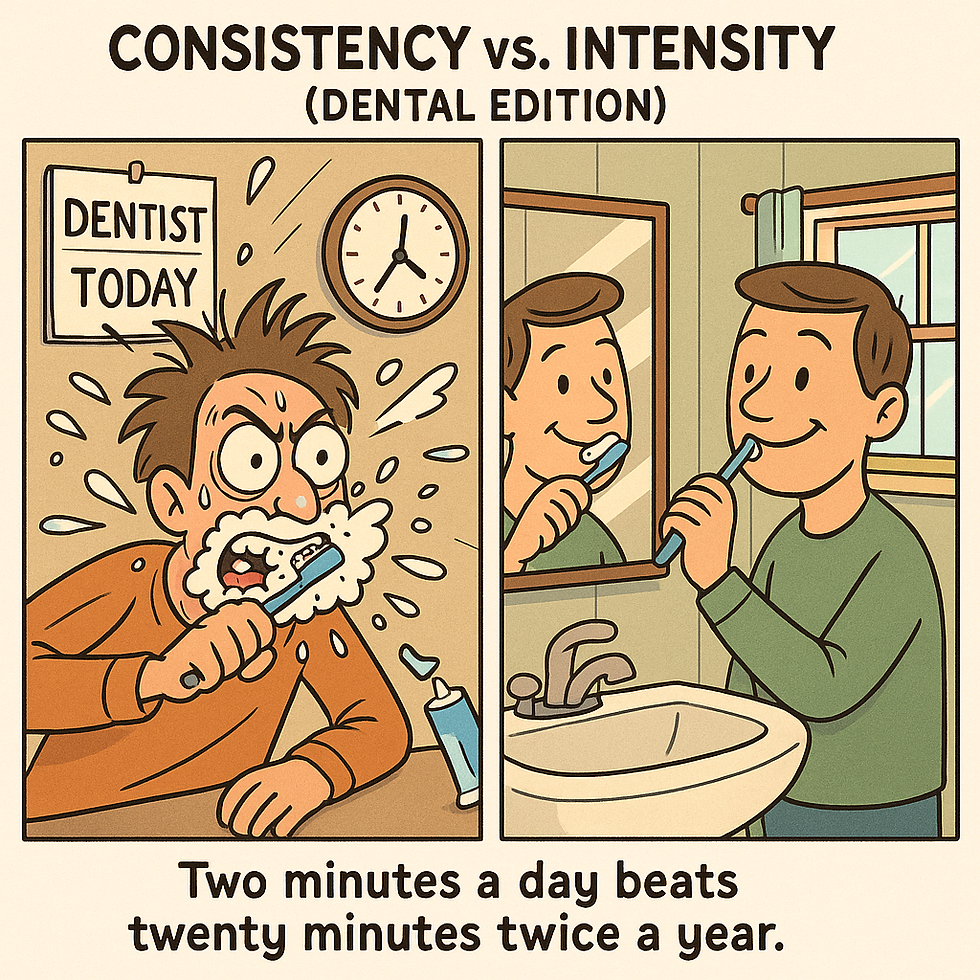In racing, no one skips the pit stop just to say they worked harder.
- Aug 13, 2025
- 3 min read

Have you ever watched a NASCAR race?
There’s this moment near the end of the race when cars have enough fuel to finish, but they still pull into the pit. Not for gas - but for new tires. On the surface, that seems crazy, right? Why stop doing the only thing that gets you closer to the finish line, which is driving, just to stop?
Because it’s faster in the big picture to stop in order to go faster.
Nobody watching that race would applaud the driver for skipping the pit stop because they were “working so hard.” That’d be stupid. In racing, the benefit of stopping for new tires is obvious and measurable. New tires mean faster laps multiplied by the number of laps left will overcome the time it takes to stop. Those few seconds can be the difference between first place and tenth.
In construction project management - and honestly, in life - it's not always so clear. We don’t always see the ROI on the small tweaks that make our work easier. But just because you can’t measure it down to the decimal doesn’t mean it’s not real.
Let me give you an example.
I once worked on a light rail extension project in Denver. We were near the end - doing testing on the OCS (Overhead Contact System). Every morning, the lines would get electrified. Each section had its own disconnect switch, locked in its own cabinet at the substation. One of our guys, Tommy, had to go unlock 7 cabinets at each of the 3 substations. Twice a day.

So that’s 21 cabinets. And he had 21 different padlock keys. Picture him every morning, flipping through this janitor’s nightmare of a key ring, trying to match each key to each lock. It was time-consuming, frustrating, and worst of all, it delayed everyone else from getting to work.
And I remember saying: Tommy, just get 21 padlocks all keyed the same. Then you only need one key. He said, “But it would be expensive to buy new padlocks! It’s no big deal, this is good enough.”
In a world of real problems, just make it easier on yourself.
I’ve heard smarter people than me say: you should make it easy to do the things you want to be doing, and hard to do the things you don’t want to do. That’s how behavior change actually sticks.
Want to eat more fruit? Leave a bowl of apples on the table.
It’s not laziness - it’s strategy.
And in construction management, this mindset can save your sanity. We have enough “real” problems to work on, don’t spend that brain power on things a pit stop can take care of.
Here are a few “pit stops” worth taking:
Take 30 minutes to document the steps for that weird process you only do twice a year. You’ll thank yourself later.
Make email templates for stuff you send all the time. Change notifications, RFIs, whatever it is - stop typing them from scratch.
Set up simple file naming conventions and stick to them. Future You will love not digging through random folders like a digital archaeologist.
None of these things are glamorous. You won’t get a standing ovation for standardizing your file names. But you will work faster, make fewer mistakes, and have more mental bandwidth for the real problems - the ones that don’t have a quick fix.
At the end of the day, yeah, it feels good to “work really hard.” To grind. To put in the hours.
But make sure you’re grinding on the right things.
Because nobody wins the race by skipping the pit stop. They win by knowing when to pause, make a smart adjustment, and then hit the gas.
-Dan



Comments